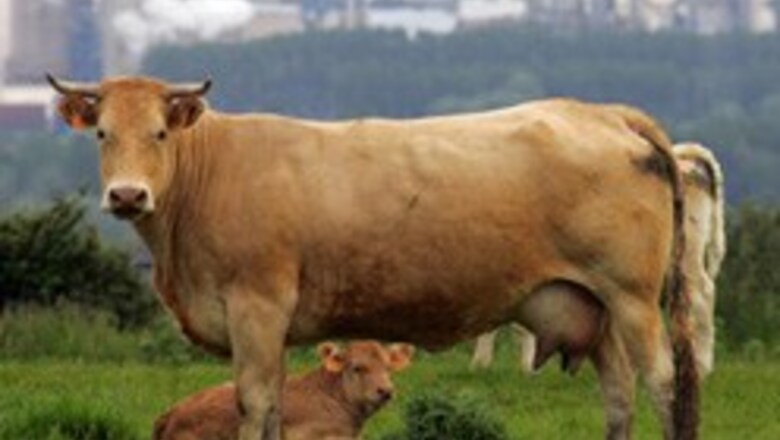
views
Washington: What does the cow have to do with the global oil crisis? Well, it may help ease it.
An enzyme from a microbe that resides deep in a cow's gut holds the key to converting corn into a cheap biofuel like ethanol, a new study has found.
The enzyme, which allows a cow to digest grasses and other plants, can be used to turn other plant fibres into simple sugars. These simple sugars can be used to produce ethanol to power cars and trucks, said Michigan State University researchers, who conducted the study.
Traditionally, only the kernel of corn plants have been used to make ethanol, but the new discovery will allow the entire corn plant to be used, so more fuel can be produced at far lower cost.
The researchers, led by Mariam Sticklen, inserted the enzyme from a bacterium in the cow's gut into a corn plant, triggering the ethanol-making process without having to use extremely expensive synthetic chemicals.
"It will save money in ethanol production," Sticklen said. "Without it they can't convert the waste into ethanol without buying enzymes - which is expensive."
Sticklen and her colleagues presented their findings at the American Chemical Society meeting Wednesday. The study will also appear in the June edition of the journal Nature Review Genetics.
Turning plant fibres into sugar requires three enzymes. The new variety of corn created for biofuel production, called Spartan Corn III, builds on Sticklen's earlier corn versions by containing all three necessary enzymes.
The first version, released in 2007, cuts the cellulose into large pieces with an enzyme that came from a microbe that lives in hot spring water.
Spartan Corn II, with a gene from a naturally occurring fungus, takes the large cellulose pieces created by the first enzyme and breaks them into sugar pairs.
Spartan Corn III, with the gene from a microbe in a cow, produces an enzyme that separates pairs of sugar molecules into simple sugars. These single sugars are readily fermentable into ethanol, meaning that when the cellulose is in simple sugars, it can be fermented to make ethanol.



















Comments
0 comment